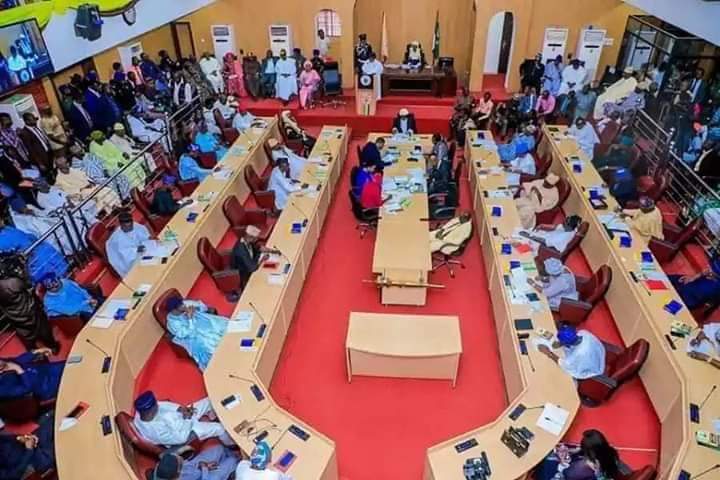Apart from the immeasurable national impact he made within just 198 days (less than seven months) in office, what is decidedly affirmed to be the late General Murtala Muhammed’s most famous speech set the stage for Africa’s epochal confrontation with colonial, racist and settler regimes in Angola, Guinea-Bissau, Mozambique, Rhodesia (renamed Zimbabwe), and South Africa. At the Extra-Ordinary Summit of African Heads of States under the Organisation of African Unity, held in Addis Ababa, the political capital of Africa, on January 11th, 1976, Africa’s martyr General Murtala Muhammed, put the world on notice. The speech aptly titled “Africa has come of age” declared that our countries, and by extension all their social and political organizations, “would not take orders from any extra-continental power, however, powerful.”
He, General Murtala Muhammed of blessed memory, further stated that “Africa is capable of resolving her own problems without any presumptuous lessons in ideological dangers, which more often than not, have no relevance to the problems at hand…”. 41 years after General Murtala expressed this bold vision, we must ask ourselves, is it that Africa has now retrogressed below the threshold of positive consciousness bequeathed to us to this moment when “extra-continental powers” like ISIS or Al-Qaeda are directing Boko Haram to turn its lethal weapons on social progress, with poor people as the undeniable victims of their insurgency?
For a succession of Nigerian leaders going back to the first republic under Prime Minister Sir Abubakar Tafawa Balewa, through General Yakubu Gowon and General Olusegun Obasanjo who succeeded General Murtala Muhammed, the willingness to deploy resources to secure the basic rights to life and happiness, not just in Nigeria but all over Africa, was deeply rooted in the psyche of the true leaders of our people. For again, in that his famous speech, General Murtala Muhammed, minced no words in stating why it was necessary to fight evil wherever it occurred in Africa: quote, “when I contemplate the evils of apartheid, my heart bleeds and I am sure the heart of every true-blooded African bleeds.” End of quote.
Most researchers believe that the cradle of apartheid in South Africa was in 1948 and lasted till 1994 when Africa’s legend, Nelson Mandela of the ANC had to be released from prison to assume the democratic leadership of the country. But in the age or era of apartheid, a total of 21,000 persons were murdered according to reports published by the Human Rights Committee of South Africa which conducted an extensive investigation into the atrocities of the Boers against Africans. At the time General Murtala’s heart bled over atrocities of apartheid, the number of murders was less than 7,000 in the run-up to 1976 through the 1980s.
Your Excellencies, Distinguished guests, ladies and gentlemen, how much more would General Murtala’s heart have bled today if he were around to know, that while it took South Africa’s apartheid 46 years to take 21,000 lives, it took Boko Haram only 7 years to cause the murders of 100,000 lives of innocent people, largely women, children and old people in Nigeria?
If General Murtala Muhammed were alive today, imagine how his heart would have bled most profusely! Certainly, his fate would have been no better than Egypt’s General Gamel Abdel Nasser’s in September 1970, when his heart failed over a lingering worry that fellow Arabs, Jordanians, and Palestinians, were killing each other. I cannot resist such a comparison, for it stands to be argued if General Murtala Muhammed was not to Africa, what Gamel Abdel Nasser was to Arabia. It took a heart failure for Gamal Abdel Nasser, whereas a black African consciously planned and carried out the assassination of Africa’s martyr, General Murtala Muhammed! May his soul rest in peace! Amen!
I came into office in the midst of the Boko Haram crisis in 2011. As at that time, the insurgents had begun serial assassinations and planting of IEDs mainly in Maiduguri metropolis, which was, and now even more so, the most populated part of the State.
Last month, my predecessor Governor Ali Modu Sheriff issued a political statement. In it, he implied that as at the time he handed over to me in 2011, Boko Haram had asserted territorial control and carried out its atrocities within Maiduguri only. According to him, Boko Haram wasn’t in control of local government areas. His statement, designed as it were to aim a cheap political shot, only stood down both the facts and internal dynamics of the Boko Haram terror strategy.
The thesis, yet to be punctured, is that the spread of Boko Haram was a consequence of creating and nurturing the enabling environment that started it in the first place, and that consciously carved out niches for it in governance and society.
Two years before I came into office, specifically, in July, 2009 when the Boko Haram launched its first (major) concurrent attacks in Maiduguri, its cells carried out similar attacks in Damasak, headquarters of Mobbar Local Government Area in Borno State. Cells, then yet to become active, existed alongside visible followers in other local government areas.
In fact, the Boko Haram which spread to Bauchi (Bauchi State) and Potiskum (Yobe State) from Borno State attacked targets in these states within the same July, 2009. Boko Haram was by this time everywhere in Borno State. I have restrained myself from blaming the previous Governor but the fact of the matter is that Governor Ali Modu Sheriff allowed his ego to override his actions by failing to amicably settle the violent disagreements that ensued between a group of armed forces and followers of the Boko Haram sect in 2009, who at that time were known as Yusufiyya. Between 2008 and 2009, the late Mohammed Yusuf was a regular critique of Sheriff’s administration in some of his sermons, I do not know the basis of their problems. Then, in June, 2009, there were disagreements between Yusuf’s followers and an anti-robbery squad codenamed, ‘Operation Flush’.
Credit: Sahara Reporters











